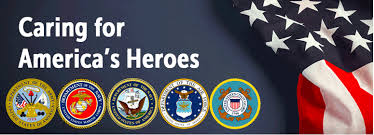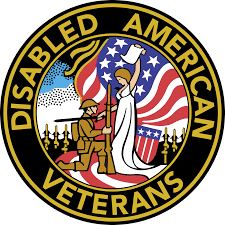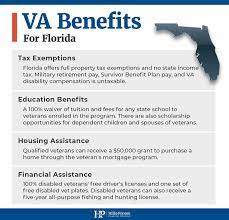As our veterans age, they may face a variety of challenges that can make it difficult to maintain their quality of life. Many veterans struggle with health issues, financial difficulties, and social isolation. Fortunately, there are programs available to help veterans in need. One such program is the Veterans Assistance Program for Seniors.
The Veterans Assistance Program for Seniors is designed to provide support and assistance to veterans who are 65 years or older. The program offers a wide range of services, including financial assistance, healthcare benefits, and social support.
One of the main benefits of the program is financial assistance. Many seniors struggle with the costs of living as they age, and this can be especially true for veterans who may have limited income or resources. The Veterans Assistance Program for Seniors provides financial assistance in the form of pensions and disability compensation.
In addition to financial assistance, the program also provides healthcare benefits. These benefits can include medical care, prescription drugs, and mental health services. This is particularly important for seniors who may be dealing with chronic health conditions or disabilities.
Another key component of the Veterans Assistance Program for Seniors is social support. Many seniors struggle with loneliness and isolation as they age, which can have a negative impact on their mental health and well-being. The program offers a range of social activities and events designed to help seniors connect with others in their community.
Overall, the Veterans Assistance Program for Seniors is an invaluable resource for veterans who are aging. It provides much-needed support and assistance to those who have served our country so that they can continue to live happy and healthy lives in their golden years. If you or someone you know is a veteran over 65 years old in need of assistance, we encourage you to explore this program as a potential source of support.
FAQs on Veterans Assistance Programs for Senior Citizens
- What benefits are available to veterans through the veterans assistance program?
- How do I apply for veterans assistance programs?
- Are there any special programs or services available specifically for senior veterans?
- What types of financial assistance are offered through the veterans assistance program?
- Is there a time limit on how long I can receive benefits from the veterans assistance program?
- How do I find out if I am eligible for any veteran’s benefits or services?
- Are there any other organizations that provide support and resources to veteran seniors?
- What happens if my application for a veteran’s benefit is denied or delayed?
What benefits are available to veterans through the veterans assistance program?
The Veterans Assistance Program offers a range of benefits to veterans who are 65 years or older. Some of the benefits available through the program include:
- Financial assistance: The program provides financial assistance in the form of pensions and disability compensation to eligible veterans who have limited income or resources.
- Healthcare benefits: Veterans can access medical care, prescription drugs, and mental health services through the program. The program also covers long-term care for eligible veterans who require assistance with daily living activities.
- Social support: The program offers a range of social activities and events designed to help seniors connect with others in their community. This can include recreational activities, volunteer opportunities, and counseling services.
- Housing assistance: Eligible veterans can receive housing assistance through the program, including help with rent payments or home modifications to accommodate disabilities.
- Education and employment assistance: Veterans can access education and training programs to help them transition back into civilian life or pursue new career opportunities.
Overall, the Veterans Assistance Program is designed to provide comprehensive support to veterans who are aging and may be facing a variety of challenges. By offering financial assistance, healthcare benefits, social support, housing assistance, education and employment opportunities, this program aims to improve the quality of life for veterans in their golden years.
How do I apply for veterans assistance programs?
If you are a veteran in need of assistance, there are several steps you can take to apply for veterans assistance programs:
- Identify the programs that may be available to you: There are many different programs available to veterans, ranging from healthcare benefits to financial assistance. Research the various programs that may be available to you and determine which ones you may qualify for.
- Gather your documentation: Before applying for any veterans assistance program, it’s important to gather all the necessary documentation. This may include your military service records, medical records, and financial information.
- Contact your local Veterans Affairs (VA) office: The VA is responsible for administering most veterans assistance programs. Contact your local VA office and speak with a representative about the specific program(s) you’re interested in.
- Complete the application process: Once you’ve identified the program(s) you’re interested in and gathered all necessary documentation, it’s time to complete the application process. This may involve filling out forms, providing additional documentation, or meeting with a representative from the VA.
- Follow up on your application: After submitting your application, it’s important to follow up with the VA to ensure that it’s being processed in a timely manner. If there are any issues or concerns with your application, address them as soon as possible.
Remember that applying for veterans assistance programs can be a complex process, so don’t hesitate to seek help if needed. Many organizations offer free assistance with navigating these programs and can help ensure that you receive all of the benefits and services you’re entitled to as a veteran.
Are there any special programs or services available specifically for senior veterans?
Yes, there are several special programs and services available specifically for senior veterans. These programs are designed to address the unique needs and challenges faced by older veterans, including healthcare, financial assistance, and social support.
One such program is the Veterans Health Administration (VHA) Geriatrics and Extended Care program. This program provides a range of healthcare services to older veterans, including home-based primary care, geriatric evaluation and management, and hospice and palliative care. The VHA also offers caregiver support programs to help family members who are caring for aging veterans.
Another program available to senior veterans is the Aid and Attendance benefit. This benefit provides financial assistance to veterans who require help with activities of daily living or who are housebound due to a disability. The benefit can be used to pay for in-home care, assisted living facilities, or nursing homes.
The Department of Veterans Affairs (VA) also offers a variety of social support programs for senior veterans. These programs include the VA’s Community Living Centers, which provide long-term care services to eligible veterans, as well as the VA’s Adult Day Health Care program, which offers socialization opportunities and health services in a group setting.
Additionally, many non-profit organizations offer programs specifically designed for senior veterans. For example, the Honor Flight Network provides free trips for World War II and Korean War veterans to visit their memorials in Washington D.C., while the Gary Sinise Foundation’s R.I.S.E. program builds specially adapted smart homes for severely wounded veterans.
Overall, there are many special programs and services available specifically for senior veterans. These resources can help ensure that older veterans receive the care and support they need in their golden years.
What types of financial assistance are offered through the veterans assistance program?
The Veterans Assistance Program offers several types of financial assistance to eligible veterans who are 65 years or older. These include:
- Pension: The Veterans Pension is a tax-free benefit paid to wartime veterans who have limited income and assets, and who served at least 90 days of active military service, with at least one day during a wartime period.
- Disability Compensation: The Disability Compensation is a tax-free benefit paid to veterans who were injured or became ill while serving in the military. The amount of compensation is based on the severity of the disability.
- Aid and Attendance: The Aid and Attendance benefit is an additional payment that can be added to a veteran’s pension or disability compensation if they require the aid and attendance of another person to perform daily living activities, such as bathing, dressing, or eating.
- Housebound Allowance: This allowance is an additional payment that can be added to a veteran’s pension if they are confined to their home due to a permanent disability.
- Burial Benefits: The Veterans Assistance Program also provides burial benefits for eligible veterans, including burial in a national cemetery, headstones or markers, and burial flags.
It’s important to note that eligibility requirements vary for each type of financial assistance offered through the Veterans Assistance Program. Veterans should consult with their local VA office or visit the VA website for more information on eligibility criteria and how to apply for these benefits.
Is there a time limit on how long I can receive benefits from the veterans assistance program?
The length of time a veteran can receive benefits from the Veterans Assistance Program varies depending on the specific program and the veteran’s individual circumstances. Some benefits, such as disability compensation, are provided for as long as the veteran meets eligibility requirements. Other benefits, such as pensions or educational assistance, may have time limits or specific eligibility criteria that must be met.
It’s important to note that veterans can have their benefits reviewed periodically to ensure they still meet eligibility requirements. In some cases, a veteran’s benefits may be reduced or terminated if their circumstances change.
If you’re receiving benefits from the Veterans Assistance Program and you’re unsure about how long you’ll be eligible to receive them, it’s a good idea to speak with a representative from the Department of Veterans Affairs (VA). They can provide more information about your specific situation and help you understand your options.
How do I find out if I am eligible for any veteran’s benefits or services?
If you are a veteran, you may be eligible for a wide range of benefits and services. The best way to find out if you are eligible is to contact the Department of Veterans Affairs (VA) or a veterans service organization (VSO). Here are some steps you can take to determine your eligibility:
- Visit the VA website: The VA website has a wealth of information about benefits and services available to veterans. You can start by visiting their Benefits Explorer tool, which will guide you through a series of questions to help determine your eligibility for various VA benefits.
- Contact the VA: You can also contact the VA directly by calling their toll-free number at 1-800-827-1000. A representative will be able to answer your questions and help you determine your eligibility for benefits.
- Contact a VSO: Veterans service organizations such as the American Legion, Disabled American Veterans, and Veterans of Foreign Wars can also provide assistance with determining your eligibility for benefits. These organizations have trained service officers who can help you navigate the application process and ensure that you receive all the benefits you are entitled to.
- Check with your state: Many states offer additional benefits and services to veterans. Check with your state’s department of veterans affairs or visit their website to learn more about what is available in your area.
Remember, it is important to explore all possible avenues when determining your eligibility for veteran’s benefits and services. Don’t hesitate to reach out for assistance – there are many resources available to help veterans access the support they need.
Are there any other organizations that provide support and resources to veteran seniors?
Yes, there are several other organizations that provide support and resources to veteran seniors. Here are a few examples:
- Veterans of Foreign Wars (VFW) – The VFW offers a variety of programs and services for veterans of all ages, including senior veterans. They provide assistance with VA benefits claims, financial assistance, and advocacy.
- Disabled American Veterans (DAV) – The DAV provides a range of services to disabled veterans and their families, including senior veterans. They offer assistance with VA benefits claims, transportation to medical appointments, and employment resources.
- Honor Flight Network – The Honor Flight Network is a nonprofit organization that provides free trips for senior veterans to visit war memorials in Washington D.C. This program is available to any veteran who served during World War II, the Korean War or the Vietnam War.
- National Association of American Veterans (NAAV) – The NAAV provides a variety of services to veterans and their families, including senior veterans. They offer assistance with VA benefits claims, employment resources, and counseling services.
- Senior Veterans Service Alliance (SVSA) – The SVSA is dedicated to helping senior veterans access the benefits they have earned through their service. They provide assistance with VA benefits claims, financial assistance, and advocacy.
These are just a few examples of the many organizations that provide support and resources to veteran seniors. If you or someone you know is a veteran in need of assistance, we encourage you to explore these organizations as potential sources of support.
What happens if my application for a veteran’s benefit is denied or delayed?
If your application for a veteran’s benefit is denied or delayed, it can be frustrating and stressful. However, it’s important to know that there are steps you can take to appeal the decision and get the benefits you deserve.
First, if your application is denied, you should receive a letter explaining why. This letter should also include information about how to appeal the decision. It’s important to read this letter carefully and follow the instructions for appealing.
The appeals process can vary depending on the type of benefit you applied for and the agency responsible for administering it. Generally, you will need to fill out a form or write a letter explaining why you believe the decision was incorrect. You may also need to provide additional documentation or evidence to support your claim.
Once you submit your appeal, it will be reviewed by an independent adjudicator who was not involved in the initial decision. They will review all of the evidence and make a new decision based on the facts of your case.
If your appeal is still denied, you may have additional options for further review. For example, you may be able to request a hearing before a judge or file a lawsuit in federal court.
It’s important to note that appeals can take time – sometimes several months or even years – so it’s important to be patient and persistent throughout the process. You may also want to consider seeking assistance from an attorney or veterans service organization who can help guide you through the appeals process.
In summary, if your application for a veteran’s benefit is denied or delayed, don’t give up hope. There are steps you can take to appeal the decision and get the benefits you deserve. Be sure to read any denial letters carefully and follow the instructions for appealing, and consider seeking assistance from professionals who are experienced in helping veterans navigate this process.



